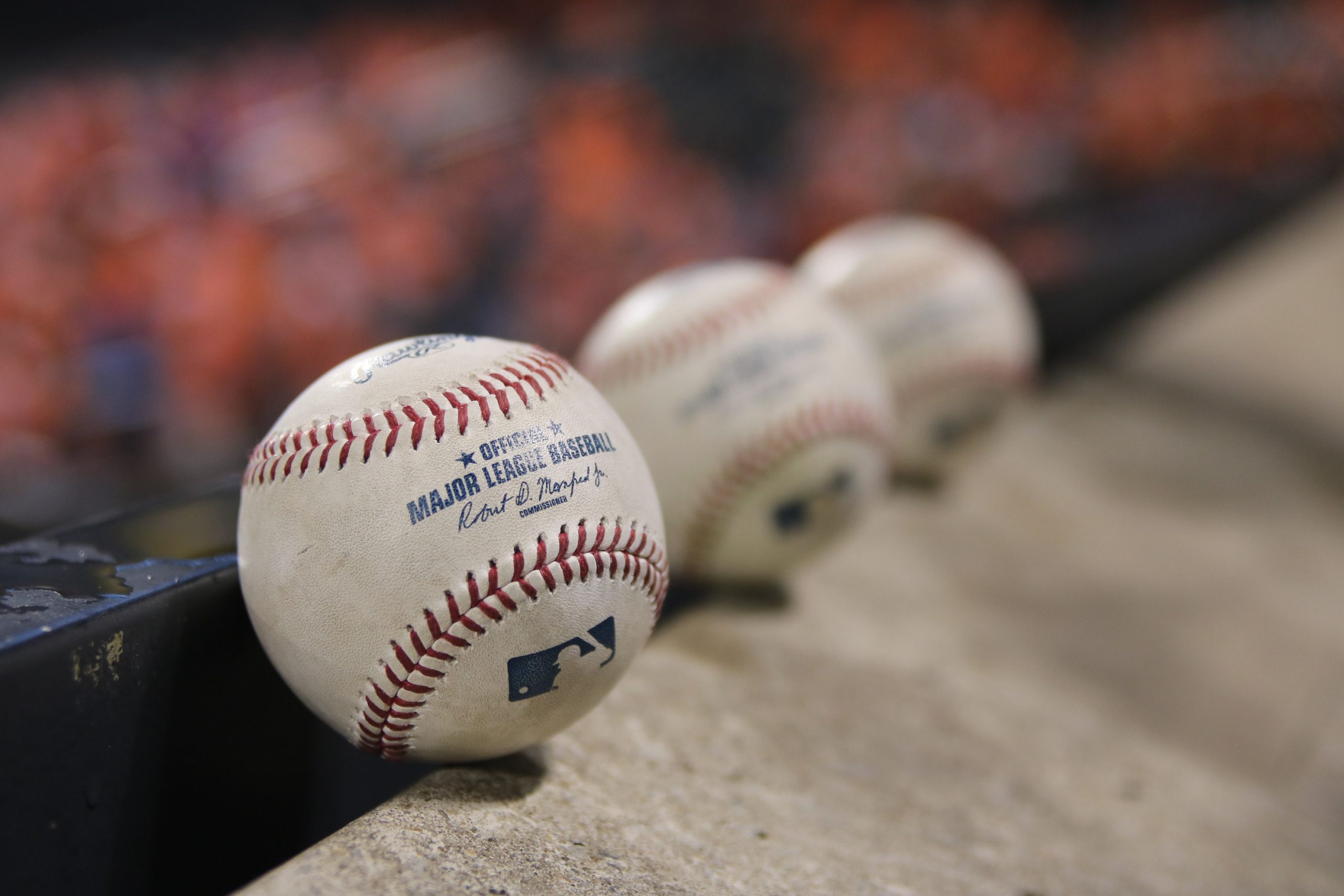Moneyball Sign Up Bonus
You can find bank bonuses from $100, $200, $300, $400, $500, and up to $1,000+. Readers can open several account types and different banks to earn hundreds and thousands of dollars every year. Bank account bonuses are categorized into the best personal checking, savings, and business accounts. Billy gives up the chance to go take things slowly, and become a more mature, disciplined player at Stanford. Furthermore, he even loses the supposed financial benefits of major-league play, losing his massive signing bonus right away. For example, a fourth round shortstop may get a signing bonus of 450,000 dollars while the 38th round shortstop may only get 1,000 dollars. Consequently, the organization has a tremendous amount of money invested in the fourth rounder and they need him to develop faster (Lewis, 2003).
If you’ve found your way to this guide, then I’m guessing you’ve watched the film ‘Moneyball’ with Brad Pitt, based upon the true story of Billy Beane and his quest to change the fortunes of Oakland’s baseball team, and thought to yourself, ‘I fancy a bit of that’.
There are lots of real-life examples of football teams taking this data-grounded theory, the most famous here in the UK being Brentford, who narrowly missed out on promotion to the Premier League in 2020.
Whilst the economic theory behind Moneyball may be relatively complex, the reason why it’s so tempting to base your FM save on this principle, is that it allows you to go hunting for hidden gems and turn them into superstars.
The football you end up playing may not always be pretty on the eye, but boy is it effective. And here’s how you do it.
What is Moneyball?
Before we get to a few basic rules, it’s worth understanding a little bit more about where this came from. We’ve already mentioned the 2011 film about baseball, but in football terms, books such as ‘Soccernomics’, ‘The Numbers Game’ and ‘Football Hackers’ look at applying data principles to the beautiful game in incredible detail. Between them, you can almost see the blueprint teams like FC Midjtylland are using to run their club.
Now, as much as this pains me to say given my success on the game, Football Manager isn’t real life. Sad times. So, some of the rules outlined in these books aren’t really applicable when playing the game, and whilst there are dozens of rules you could choose to base your save around, these have never failed me.
The rules:
The formation is king
The analyst and scouting reports you receive ahead of every game give you tremendous insight into how your opposition will likely line up and what their strengths and weaknesses are. If you’re playing Moneyball, that doesn’t matter.
The formation you choose to adopt is the most important thing, and you should never waver from it. Whether it’s a cup-game against weaker opposition or a must-win promotion clash, stick to your formation. It doesn’t actually matter what that formation is, although when managing lower league and younger players I would recommend keeping it as simple as possible.
One last tip on formations, clean sheets are worth the equivalent of two-goals in ‘Soccernomics’, so defensive stability is key to any potential success.
Only sign players under-25
Football Manager games may have created a generation of fans that think players are over the hill once they reach 30, and of course, this isn’t true. Except for playing Moneyball, it kind of is. The system relies on being able to develop younger, cheaper players in the hope of eventually selling for a profit.
Just like with younger players in real-life, you shouldn’t be expecting brilliant performances week-in-week-out, so remember to temper your expectations and keep the bigger picture in mind.

Accept any offer over the player’s value
This is the rule that quite often puts people off playing Moneyball rules, but providing you’re utilising your scouting network properly, really shouldn’t be causing you any headaches. It all hinges on the concept of ‘value’ which underpins every transaction.
Whilst you’re looking for transfer-listed or out-of-contract players available for way under their market value, if someone is willing to pay more than your player is worth, accept that offer every time.
Sometimes this won’t sit well with you, club-legends can end up being sold for £1k over their value, but get your scouting in order and make sure you have players on your shortlist, or even better in your youth teams, ready to step up in any position.
Never buy players you don’t need
The main danger of constantly looking at transfer-listed players is that you’ll find some incredible players, right in your price range, and that fit your Moneyball rules. You’d, unfortunately, be wrong. You’re forgetting about the very first rule I told you.
Formation is king, so unbalancing your squad to accommodate a new player that either doesn’t fit the system, or that takes budget away from the areas of the squad that really needs the attention is a massive ‘no’. It sounds the most killjoy of all the rules to follow, but trust me, it should prevent any financial woes or an unhappy squad later down the line.
This rule also applies if you have youth players ready to take their chance. Of course, it can be tempting to sign that star striker and forsake the 18-year-old waiting in the wings. It seems like the safer option surely. But actually, all you’ve done is waste the money you’ve spent on developing that player.

Treat the money as if it’s your own
This might say more about me than the Moneyball rules itself, but for me, this is the most important rule to remember. Every penny you spend as a lower league club should be spent with ROI in mind. In my current save, 8 seasons in, with 12 trophies in the bag, I haven’t paid one single loyalty bonus or agent fee. Not one.
Every aspect of a transfer needs to be considered, from the payment structure, clauses and bonuses, through to player contract details. If you’re used to managing Man City or PSG, no judgement here, this may sound a little excessive, but being frugal can sometimes mean the difference between administration or not in lower league saves. More importantly, it means you can build the killer squad you want.
Conclusion
Playing Moneyball rules on Football Manager can be as complicated as you want to make it, believe me, there are more than enough options to choose from if you want to dive deeper. But if you follow the simple rules I’ve outlined above, you’ll set yourself on the road to success.
If Oakland A's general manager Billy Beane is the engine that drives 'Moneyball' -- the book and movie versions -- Jeremy Brown plays the role of the caboose. He got dragged along for the ride, and became an unwitting victim in the process.
The concept of 'Moneyball' is rooted in measurables over intangibles, progressive thinking over conventional wisdom and the never-ending quest to find undervalued assets, and no player better represents the Oakland franchise's approach to roster-building at the ground level than Brown, a 5-foot-10, 226-pound, former University of Alabama catcher with a potent bat, a discerning eye and a physique straight out of a Tuesday night bowling league.
As the film version of 'Moneyball' opens nationwide Friday to overwhelmingly positive reviews, Brown makes only a passing appearance. In a grainy film clip within the movie, a hefty actor playing the role of Brown begins to circle the bases after crushing a ball, only to trip over first base and subsequently recoup his dignity thanks to a heartwarming twist.
The real-life ending to Jeremy Brown's career wasn't so kind.
In February 2008, with 10 major league at-bats on his résumé, Brown retired and went home to his native Hueytown, Ala. Athletics officials speak privately of 'personal, off-the-field issues' that prompted Brown to leave the game. But people who were around him during his professional odyssey say the attention he received from 'Moneyball' was a perpetual burden. They describe him as the shy, laid-back type and empathize with the challenges he faced going through life as 'The Fat Catcher.'
'He was a very 'aw-shucks,' quiet, nice guy who went about his business,' said Scott Hatteberg, who played in Oakland from 2002-05 and now works as a special assistant for the A's. 'There were all these expectations, and he was in a best-selling book, and a lot of it wasn't flattering. I'm sure the added pressure was very difficult on him. And I know from speaking to some of his teammates that it was hard for him.'
Brown plays a central role in the most entertaining chapter in Michael Lewis's book, as Beane and his scouts cull through names in preparation for the 2002 draft. While Beane runs the show, the assembled scouts cast suspicious glances toward assistant GM Paul DePodesta as he feeds numbers into a laptop computer in the quest to find hidden gems.
The scouts are incredulous when Beane begins extolling the virtues of Brown, winner of the 2002 Johnny Bench Award as the nation's best collegiate catcher, and they make note of his 'big thighs' and 'fleshy kind of body.' They were even more flabbergasted later when the A's chose Brown with the 35th overall pick and gave him $350,000, well below the recommended bonus for his slot. From that point forward, Brown personified the schism between old-school 'ball guys' and the college-educated new breed invading front offices.
In the end, the entire 'Moneyball draft' fueled a stats versus scouts debate within baseball circles. It also shined a light on baseball folklore (e.g., the quest to find players with the 'Good Face') and provided lessons on the pitfalls of player procurement at the amateur level.
In 2001, Beane famously threw a chair in anger after then-scouting director Grady Fuson used one of Oakland's first-round picks on Washington high school pitcher Jeremy Bonderman, the kind of high-upside, high-risk selection that Beane disdained. Not long afterward, Fuson left Oakland for a job with the Texas Rangers and Eric Kubota replaced him as scouting director.
The A's had a chance to amass a mother lode of talent in 2002 based on the sheer volume of their selections. They had seven of the top 39 choices in the draft and saw it as an opportunity to replenish their system in a hurry. As a low-revenue club that needed to maximize resources, the A's began to place a greater emphasis on statistics to identify top amateur players.

'What 'Moneyball' meant to me, as far as the draft, was trying to find a way to do a really hard job a little bit better,' Kubota said. 'Predicting the future with these players is extremely difficult. If we could find a little bit of an edge somewhere, we were trying to find ways to do that. Sometimes you succeed, and sometimes you don't.'
Here's what the A's came up with in 2002:
• Ohio State outfielder Nick Swisher, Oakland's first pick and the 16th overall choice, has a .837 career OPS in seven-plus seasons with the A's, White Sox and Yankees. His closest comparables on baseball-reference.com are former Montreal Expos outfielder Henry Rodriguez, followed by Tony Conigliaro, Brad Wilkerson, Jim Lemon and Ben Grieve. A perfectly fine selection.
• Joe Blanton, a right-handed starter from Kentucky, is 73-62 with a 4.33 career ERA and five seasons of 190 or more innings pitched in the majors. Blanton, now with the Phillies, has had his ups and downs because of injuries, but if you scan the list of players selected 24th overall during the past two decades, Blanton and Chad Billingsley of the Dodgers are the best of the lot.
• Mark Teahen went to Oakland with the 39th pick, then left for Kansas City in 2004 in a three-way deal that sent Carlos Beltran to Houston and Octavio Dotel to the A's. Teahen isn't a star by any means, but he has amassed 755 hits over seven big league seasons.
• Several other Oakland draftees enjoyed productive seasons or cups of coffee in the majors. The list includes catcher John Baker, shortstop Mark Kiger and pitchers Jared Burton, Bill Murphy and Shane Komine.
• The A's also drafted outfielder Trevor Crowe, catcher J.R. Towles and pitchers Brad Ziegler, Ty Taubenheim and Jonathan Papelbon, but never signed them. Papelbon decided to stay at Mississippi State, and Boston drafted him a year later.
'Our scouts loved him, and we took him as a flyer,' Kubota said. 'But he was not signable. He pretty much had his mind made up that he was going back to school.'
In all, that makes 14 Oakland draft picks in 2002 who went on to play in the majors.
Naturally, critics of 'Moneyball' focused on the flops. The list included University of Maryland shortstop John McCurdy, Fresno State pitcher Ben Fritz, Evansville pitcher Steve Obenchain and 5-8, 160-pound Notre Dame outfielder Steve Stanley. Fritz elicited some Troy Percival comparisons before Tommy John surgery derailed his career, and the A's say that Obenchain was never the same after he took a line drive in the head while shagging balls in the outfield during batting practice in Class A ball.
The mixed bag of results is more a testament to the draft than Oakland's approach. In that same 2002 draft, the Chicago Cubs had four of the top 38 selections and used them all on college pitchers -- Rutgers University's Bobby Brownlie, Ball State's Luke Hagerty, Purdue's Chadd Blasko and Orange Coast College's Matt Clanton. Those four pitchers combined to throw zero innings in the majors. Meanwhile, the Cincinnati Reds drafted a Canadian-born catcher named Joey Votto with the 44th overall pick that year.
'The baseball draft is very different than anything else,' said DePodesta, now vice president of player development with the Mets. 'You're talking about 50 percent of first-rounders becoming big leaguers and maybe 25 percent of second-rounders and down to 10 percent of third-rounders. The odds are very, very long. In a normal stable of picks, if you get one good big leaguer out of the draft, you're basically playing par.
'Could we have done better, knowing what we know now? Absolutely. But if we look back at that draft and see that all those guys got to the big leagues and a handful of them became good major league players, I think it's something for us to be proud of.'
After Lewis wrote 'Moneyball,' the resultant publicity created high expectations for Oakland's 2002 draft class, while fostering the perception that Beane and the A's thought they were 'reinventing' the game -- a notion that continues to make Beane squirm. A certain amount of fallout was inevitable, and Beane and the players weren't the only ones who experienced it.
'It was a tough few years for a lot of our scouts,' Kubota said. 'They were out there in their cars going to games and giving us opinions and working their buns off for not a ton of money. It was unfair for them to be labeled 'Moneyballers' when they were just doing their jobs to the best of their ability. They got caught in the shrapnel, so to speak.'
Oakland continues to favor college players in the draft; Bonderman remains the team's last first-round pick to come out of high school. But the franchise's evaluation pendulum has shifted back toward scouts and placed a little less emphasis on the stat-heavy approach in recent years. The A's are stacked with good young pitching, and the organization's last four first-round picks -- Jemile Weeks, Grant Green, Michael Choice and Sonny Gray -- have a chance to be significant contributors.
That's all academic for Brown, who is remembered fondly by former teammates in the Oakland organization and probably deserved a better fate. Brown had the ability to be at least a serviceable backup catcher in the big leagues, but chose to fade into obscurity back home.
'I loved the guy, man,' said Swisher, Brown's roommate in the low minor leagues. 'He could rake. Everybody was so fixated on his body type, but it's all about functionality. He could hit, he could walk, he could hit for power. I thought he was a great player, but some other things kind of got hold of him and took him out of the game.'
For what it's worth, the 'Moneyball' movie will be playing Friday night at a theater in Bessemer, Ala., just down the road from Hueytown. Will Brown buy a ticket and re-live that portion of his life? And if he does, what images will flash through his mind?
Moneyball Sign Up Bonus
'It's unfortunate that all this spotlight got put on Jeremy,' Kubota said. 'Jeremy was a good baseball player, and he didn't ask for any of this notoriety or attention. He got to the major leagues based on his playing ability -- not because he was the poster child for anything. It's just unfortunate that he couldn't be a normal guy, a normal baseball player, a normal minor leaguer.
'I can't speak for him, but I think he was maybe tired of baseball. There was no joy in it for him anymore. Maybe he just figured he'd had enough, and it was time to move on and just be a regular guy in Alabama.'
Jerry Crasnick is a senior writer for ESPN.com. Click here to purchase a copy of his book, 'License to Deal,' published by Rodale. Crasnick can be reached via email.
Moneyball Sign Up Bonus Codes
Follow Jerry Crasnick on Twitter @jcrasnick.